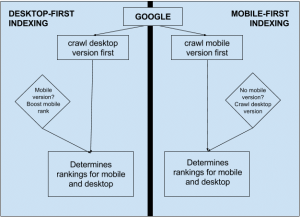By byline Dr. Adaira Landry and Dr. Resa E. Lewiss

Let’s admit it. No matter the job title—manager, director, or entrepreneur—leaders are forced to prioritize time. Naturally, when mandatory tasks pour in, they take priority and optional tasks are cut. Mentorship is often first on that chopping block. In a life where schedules are overbooked, why carve out time for others? Because the people we work with and care about need ongoing support and conversation. Because being a mentor is crucial for career development. By being proactive in how we care for others, we are better able to care for the self. Not only does it bring personal satisfaction, it grows the networks and communities around us. It’s time to resolve the demands of mentorship against the demands of our calendars. Here we give 5 strategies to fit mentoring into a busy work schedule.
Screen for Compatibility
Screen early and upfront. Spend time getting to know the person to assess the possibility for a mutually rewarding relationship. While you might want to mentor everyone, your limited time requires you to be discerning. You are not searching for replicas of yourself—this leads to a missed opportunity to diversify your panel of mentees. Instead, you are assessing for practical measures that suggest you are compatible. We recommend exploring three core principles: Do you have the content expertise to support their particular needs? Do you have the available time they are requesting? Do you have a similar work-ethic? Compatibility is a subjective determination and worth exploring early. If not compatible, kindly explain the objective reasons, redirect to alternative mentors, and keep your calendar open.
Set Meeting Windows
One of the hardest tasks is managing meetings. One week you might have meetings on Thursday and Friday morning. The next week, Monday and Wednesday. For many of us the inconsistency and unpredictability can be tough. Schedule your mentorship meetings as a standing block on your calendar. For example, select one Friday a month that will reserve your mentorship meeting times. For each hour consider fragmenting into three 20 minute meetings, two 30 minute meetings, or other mathematical derivations. We recommend resisting the temptation to add a few more slots on demand, unless you have already cared for yourself.
Streamline Signup
The back and forth emails required to confirm a meeting can clog up your inbox. Streamline this process. Create a signup link—this can be a free browser based spreadsheet, like Google Sheets, or you can pay for a program, like Calendly, that schedules links to your calendar. Either way, send this link to your trainees at the point they request a meeting to minimize the inbox clutter. They can keep the link handy for future meeting scheduling.
Say No to Rescheduling
As emergency physicians, we understand that emergencies happen unpredictably and unavoidably. Beyond these uncommon occurrences, try to keep meetings on the calendar. Bumping a meeting to the next week only makes the next week more busy. Especially if that week is already booked. If possible, consider resolving the scheduling conflict by having the meeting turn to an email exchange.
Synchronous Scheduling
When scheduling a meeting it is critical to be thoughtful of the content because some sensitive topics require us to be fully in the moment without distraction. However, not all meetings are of this sort. Many meetings can be held while walking, driving, or in transit. The world has come to accept multitasking at work, so let’s formalize this further. Schedule your mentoring sessions when you do the morning and evening dog walk or on your work commute. Another option is to bring your mentee to a work related function now that some are returning to in-person. Not only are they able to network with your network, they also gain a better perspective of your practice, interests, and influence.
Mentoring is incredibly rewarding. But it is also demanding of time – and that needs to be acknowledged and resolved. Using strategies that protect the self as you support others should be normalized. Self care allows us to be present longer for our mentees and with stronger interest and engagement. Being strategic about your time and boundaries is a healthy way to model to mentees what is and is not the role of a mentor.
Adaira Landry, M.D., M.Ed., is an emergency physician and assistant professor of emergency medicine at Harvard Medical School. Resa E. Lewiss, MD, is a professor of emergency medicine and radiology at Thomas Jefferson University Hospital. She is the creator and host of the Visible Voices podcast.
Fast Company , Read Full Story
(50)
Report Post








